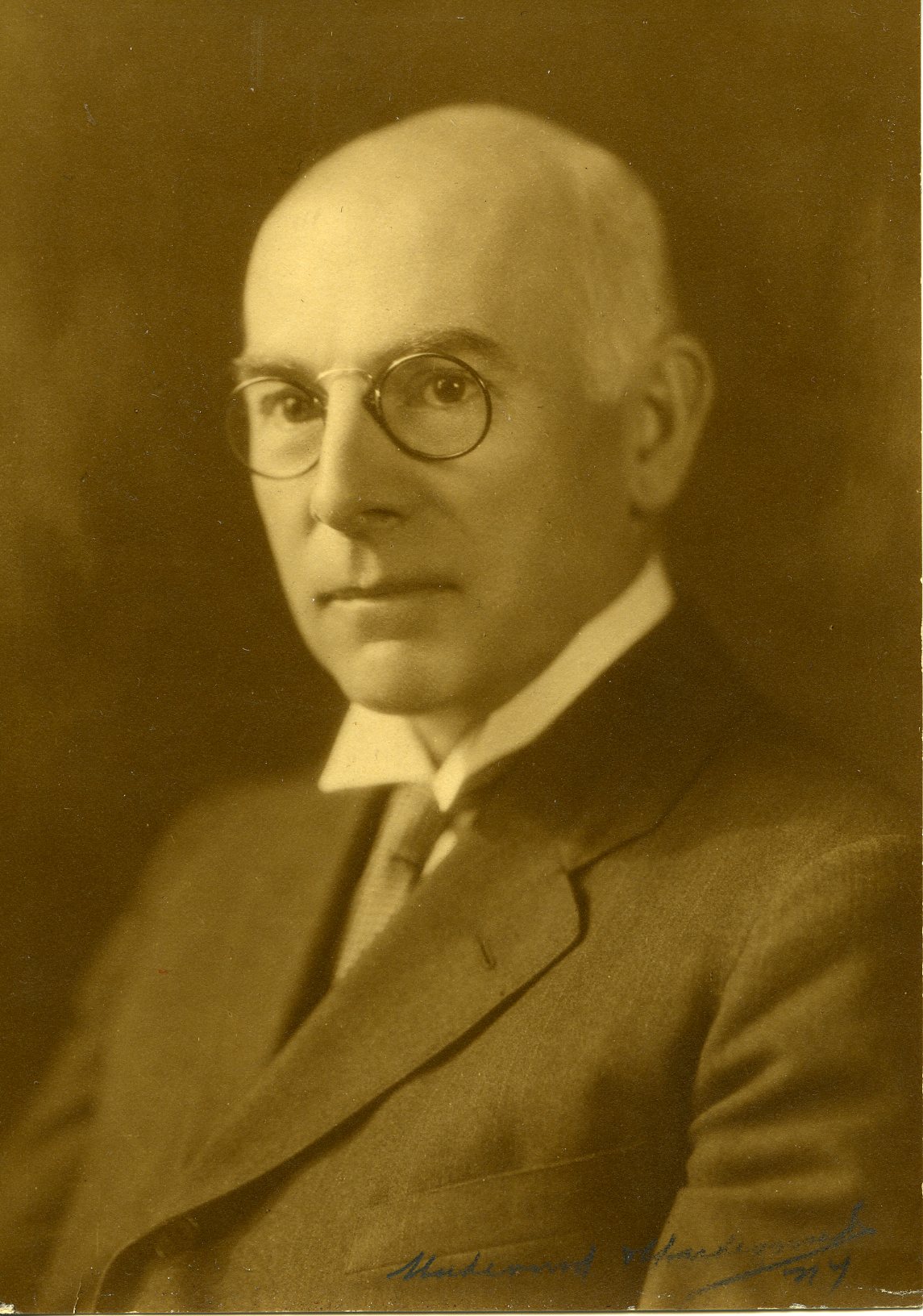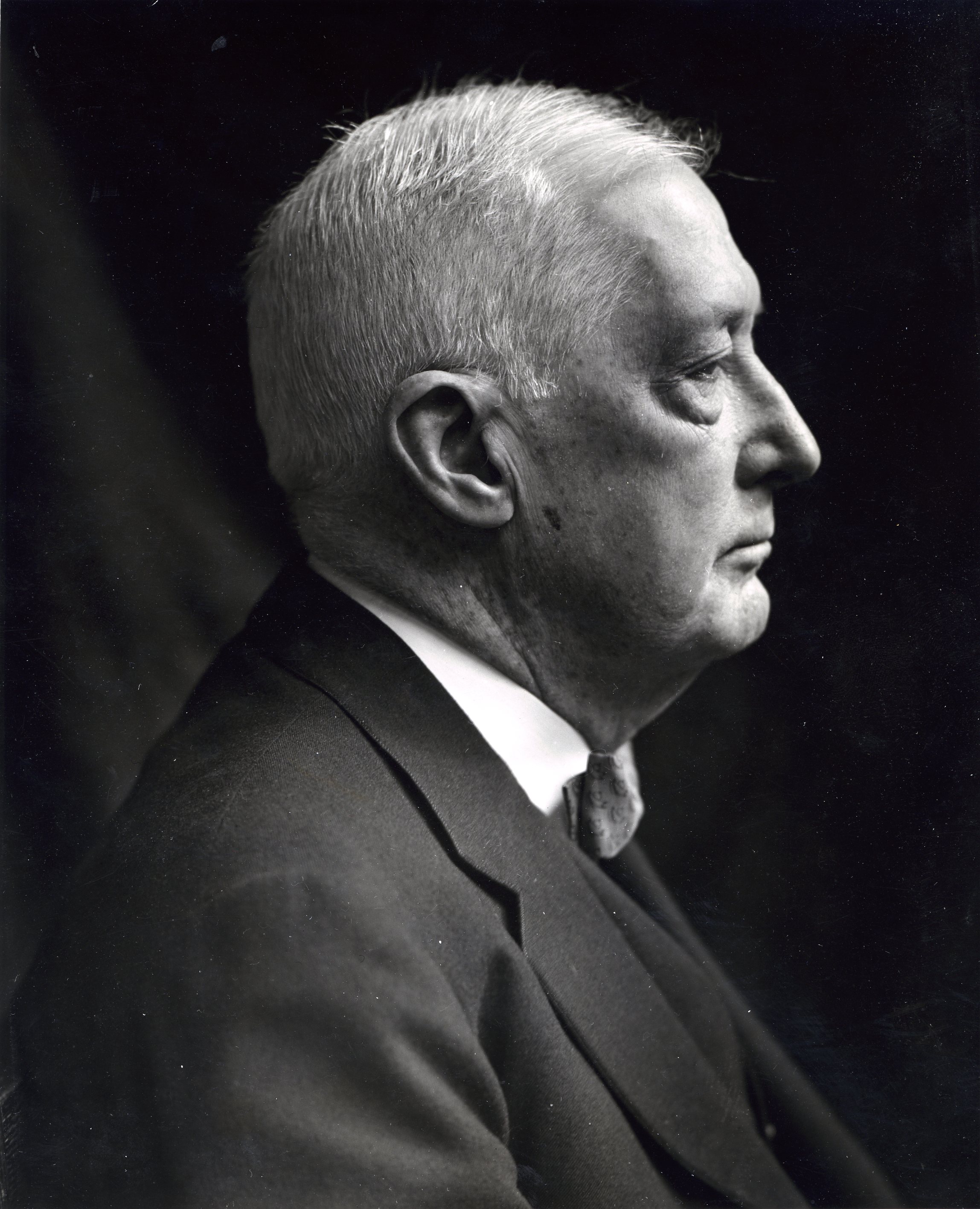Member Directory,
1847 - 1922
George W. Alger
Lawyer
Centurion, 1921–1967
Henry deForest Baldwin and Charles C. Burlingham
Burlington, Vermont
New York (Manhattan), New York
Age forty-eight

Century Memorial
When he died in 1967 a friend wrote of him: “Of course everyone knows that George Alger was a great Centurion. Up to last summer he struggled into the Club for lunch on Saturdays. He finally gave this up when he felt that it was too much of a strain on members and servants to help him. He was a great reader, and when he did come to the Club he would read for an hour or two after lunch and then be met at the door by his nurse. And he was a great talker and stimulator of talk, good talk. He knew his classics from grammar-school days, and he knew politics and much about almost everything else. He could be sharp and tough, not with malice but with guile.”
George was elected to The Century in 1921 and died at the age of ninety-four. For seventy-two years he was a member of the bar, and his career as a lawyer in New York was outstanding in the public services he performed. He graduated from the University of Vermont in 1892 and received his law degree from New York University three years later. At his death he was a senior partner in the law firm of Alger, Andrew and Rohlfs, although he had been in active since he broke his hip five years ago.
He had what a friend described as “a strong face and a strong personality,” and both are apparent in some of the legislation he stimulated. He drafted the New York Employers’ Liability Act, many amendments to the child-labor laws and the present parole law of New York State. He was appointed a Moreland Act Commissioner by Governor Alfred E. Smith in the mid-1920s to investigate the operation and management of state prisons and the State Parole Board, and he was named a second time by Governor Herbert H. Lehman in the mid-1930s to investigate mortgage-guarantee companies. He also served for several years as impartial chairman of the garment industry.
He was closely associated with the late Lillian D. Wald, founder of the Henry Street Settlement and the Visiting Nurse Service, and he was for many years chairman of the board of directors of the pioneer settlement house.
He had been a Centurion forty-six years.
Stewart Taft Beach
1969 Century Association Yearbook


